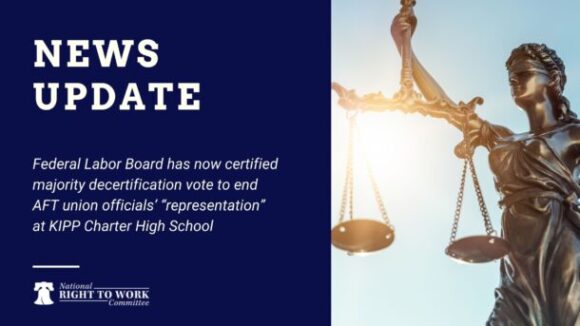Will Team Biden Weaponize Workers’ Pensions?
Big Labor abuse of worker pension and benefit funds as a means of advancing union bosses’ self-aggrandizing policy objectives is a familiar phenomenon.
As the great 20th Century classical liberal economist W.H. Hutt demonstrated in books such as The Economics of the Colour Bar (1964), in South Africa under apartheid, government-authorized monopoly privileges for union bosses were a principal tool for the oppression of black, mixed-race, and Indian employees.
The legal system of apartheid was abolished a couple of decades ago. But as John Kane-Berman, one of his country’s top journalists and now chief executive of the South African Institute of Race Relations, noted in a column earlier this spring for Johannesburg’s Business Day, today’s South African union bosses continue to wield monopoly power over employment. Kane-Berman, who as a college students was a leader of protests against apartheid, added that his country’s union bosses and their privileged legal status remain huge impediments to progress: “[W]hen it comes to opening up opportunities for the black jobless, they are the most reactionary force on the block.”
In a follow-up column for Business Day published at the beginning of this week (see the link below), Kane-Berman lays out his program for reform of South Africa’s labor policies. While the means through which his nation corrals employees under Big Labor control differ in detail from American-style compulsory unionism, several of Kane-Berman’s proposals should nevertheless sound familiar to Right to Work supporters in the U.S.:
The first requirement in slicing away union power is to stop intimidation and violence. Union leaders inciting violence during strikes should be imprisoned. If they pull teachers or children out of school they should be charged with assault. Unions should also be forced to pay up for damage they cause in violent demonstrations.
Workers who choose not to strike should have their right to work protected against pickets. Pickets should involve only the employees on strike at the particular workplace and should take place solely outside those premises. No picket should be allowed anywhere near a school.
Next on the reform list is to scrap the cartel-like system in terms of which agreements reached in bargaining councils are extended by ministerial fiat to cover employers and workers not party to them. The Free Market Foundation is commendably challenging this system in court. It is also being contested in the clothing and steel and engineering industries.
It needs to be replaced with a system in which agreements reached in bargaining councils bind only those who voluntarily sign them. . . .
Furthermore, closed-shop agreements should be outlawed. No worker should be compelled to join, or pay dues to, a union against his will.
Case for salami-slicing away union powers is as strong as ever

Big Labor abuse of worker pension and benefit funds as a means of advancing union bosses’ self-aggrandizing policy objectives is a familiar phenomenon.

What impact does handing a union monopoly power to deal with your employer on matters concerning your pay, benefits, and work rules have on your pay?

Federal Labor Board has now certified majority decertification vote to end AFT union officials’ “representation” at KIPP Charter High School